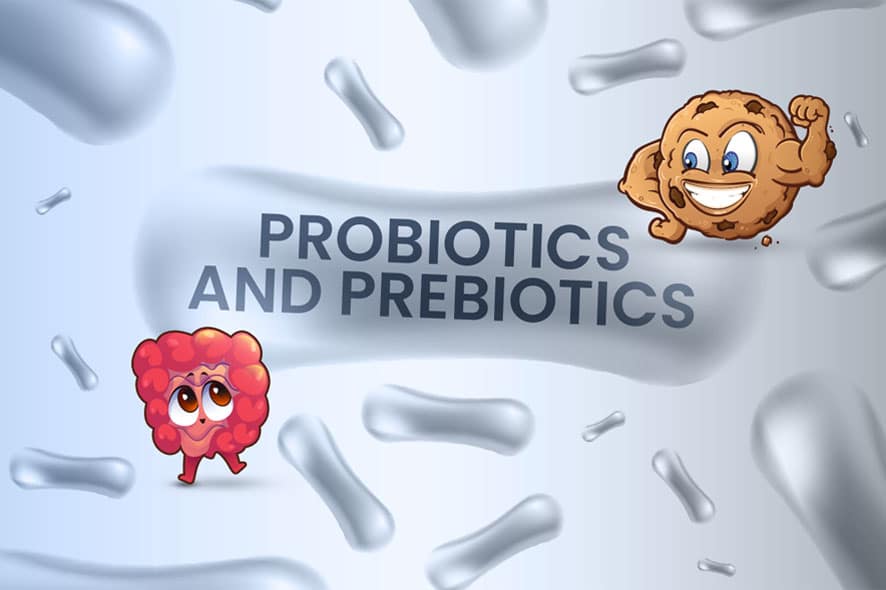Probiotics contain live microorganisms, whereas prebiotics is a special type of dietary fibre. Probiotics, while generally safe, may not be suitable for everyone. Prebiotics, on the other hand, stimulate the growth of a class of bacteria in the colon.
Probiotics and prebiotics have become popular thanks to numerous TV ads and their incredible properties have been heavily praised to attract customers, but the scientific evidence for their incredible power is still limited.
Probiotics or prebiotics are not the same. The main difference between the two comes from the fact that some contain live microorganisms and the others are a special type of dietary fibre. The World Health Organization (WHO) defines probiotics as live microorganisms that, when administered in adequate amounts, produce a beneficial effect on the health of the host.
Prebiotics, on the other hand, are not living organisms but a type of indigestible fibre that has beneficial effects on health by stimulating the growth of a specific class of bacteria in the colon.
Why should they be taken?
What are the main benefits of probiotics? As the ingested microorganisms can remain active in the intestine, they can support our body’s digestive processes.
They improve some digestive disorders, for example, they can reduce the symptoms of diarrhoea and even prevent it when it is caused by an infection or antibiotics. It has also been shown to treat infections caused by Helicobacter pylori and the symptoms of irritable bowel syndrome or Crohn’s disease.
Colon-rectal cancer prevention: there are studies on potentially beneficial effects of certain strains against the arrest of the proliferation of some tumour cells. The evidence is still limited, but results seem very promising.
Improves the body’s immune response: microorganisms can contribute to the synthesis of certain antibodies and the activation of cells participating in the defence mechanism (macrophages and leukocytes). This would be positive for elderly people since with age the body’s immunity to certain pathogens decreases.
Weight loss: they improve the biodiversity of the intestinal flora and could rebalance certain metabolic processes that can be altered in obese people because they have a less varied intestinal microbiota.
There are also mechanisms, which make them beneficial for weight loss since they can reduce the absorption of certain types of fat as well as increase the synthesis of the GLP-1 hormone associated with the feeling of satiety.
Examples of products containing
-
- Yoghurt
Enjoying great popularity in the world of probiotic foods, yoghurt is one of the most widely consumed probiotics. Nevertheless, pay attention, as not all yoghurts are healthy! They must contain live probiotics, be natural and be unpasteurized (since bacteria and microorganisms do not survive the process of pasteurization).
-
- Kombucha
Although the drink may be still unknown to many, it has an impressive thousand-year-old tradition. Kombucha is a probiotic drink made from tea fermented by a colony of microorganisms called scoby. Legend has it that samurai warriors drank this special tea before their battles to gain energy. That is why they call it the elixir of life!
Komvida is a natural unpasteurized, premium-quality kombucha, without gas, or added sugar. It is bottled in glass. As it is gluten-free and vegan, it is suitable for many groups of people. Since it is also very versatile, we can find it in many flavours!
-
- Olives and pickles
When we eat olives, gherkins and other pickles we are ingesting live yeasts and bacteria that are born in the fermentation process of these vegetables.
-
- Raw cheese
Cheese lovers are in luck. Cheese made from raw milk (it is important that it has not been pasteurized) is a source of live probiotics.
Try probiotics to enjoy their health benefits! Their properties have been known for centuries, and they are one of the ways to boost your immunity, lose weight, and improve your digestion without the help of medications.

